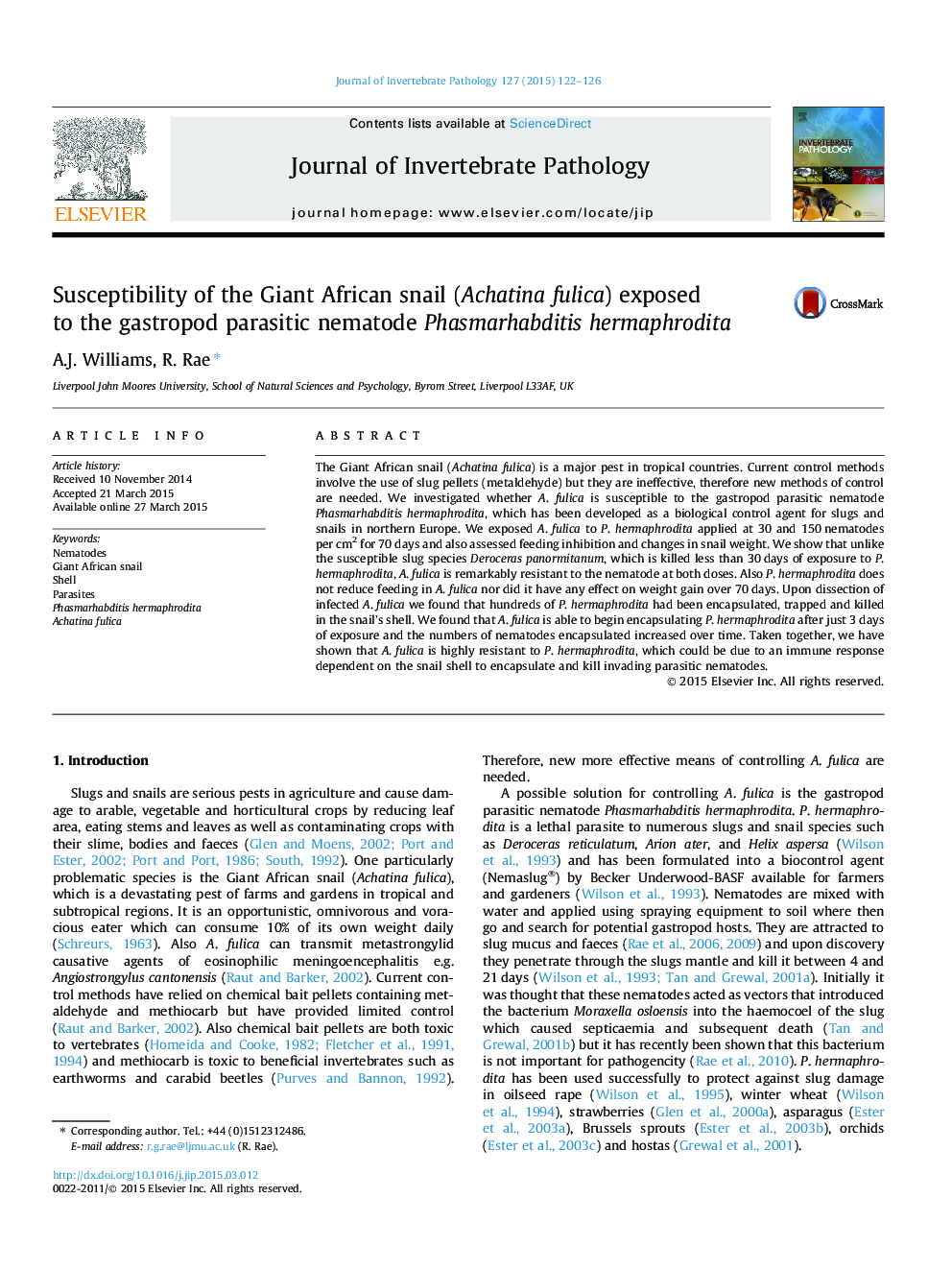| Article ID | Journal | Published Year | Pages | File Type |
|---|---|---|---|---|
| 4557648 | Journal of Invertebrate Pathology | 2015 | 5 Pages |
•New methods are needed to control the Giant African snail.•The Giant African snail was exposed to gastropod parasitic nematodes.•Snails were remarkably resistant to these parasites.•On dissection of snails nematodes were found trapped and killed in the shell.•Shell encapsulation of nematode parasites is a novel immune mechanism.
The Giant African snail (Achatina fulica) is a major pest in tropical countries. Current control methods involve the use of slug pellets (metaldehyde) but they are ineffective, therefore new methods of control are needed. We investigated whether A. fulica is susceptible to the gastropod parasitic nematode Phasmarhabditis hermaphrodita, which has been developed as a biological control agent for slugs and snails in northern Europe. We exposed A. fulica to P. hermaphrodita applied at 30 and 150 nematodes per cm2 for 70 days and also assessed feeding inhibition and changes in snail weight. We show that unlike the susceptible slug species Deroceras panormitanum, which is killed less than 30 days of exposure to P. hermaphrodita, A. fulica is remarkably resistant to the nematode at both doses. Also P. hermaphrodita does not reduce feeding in A. fulica nor did it have any effect on weight gain over 70 days. Upon dissection of infected A. fulica we found that hundreds of P. hermaphrodita had been encapsulated, trapped and killed in the snail’s shell. We found that A. fulica is able to begin encapsulating P. hermaphrodita after just 3 days of exposure and the numbers of nematodes encapsulated increased over time. Taken together, we have shown that A. fulica is highly resistant to P. hermaphrodita, which could be due to an immune response dependent on the snail shell to encapsulate and kill invading parasitic nematodes.
Graphical abstractFigure optionsDownload full-size imageDownload as PowerPoint slide
